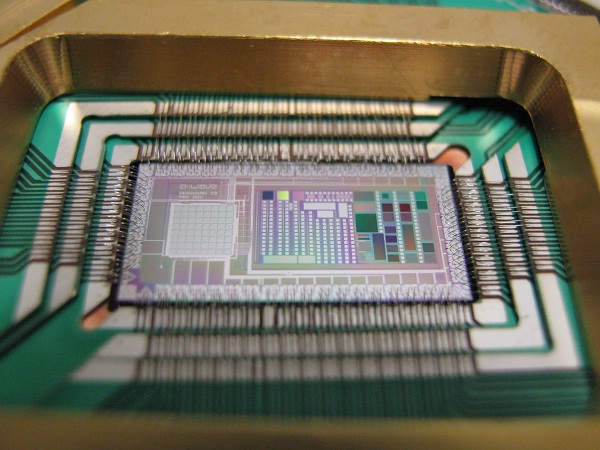Google continues to expand beyond its search engine comfort zone with the news that it is entering the field of quantum computing.
Google is looking to develop and build its own processors in an effort to speed up its online services in the future.
Quantum Mechanics
Google revealed in a blog posting that it has begun a hardware initiative, and has teamed up with a research team from the University of California at Santa Barbara, California.
Google is investigating the potential of using more artificial intelligence in its cutting edge computer designs. Quantum computing is seen by some as the next step forward for computers when analysing large quantities of data.
 “The Quantum Artificial Intelligence team at Google is launching a hardware initiative to design and build new quantum information processors based on superconducting electronics,” blogged Hartmut Neven, Director of Engineering.
“The Quantum Artificial Intelligence team at Google is launching a hardware initiative to design and build new quantum information processors based on superconducting electronics,” blogged Hartmut Neven, Director of Engineering.
Google has been joined by the UC Santa Barbara team led by John Martinis, who has apparently “made great strides in building superconducting quantum electronic components of very high fidelity.”
The new initiative is hoping to implement and test new designs for quantum optimisation and inference processors based on recent theoretical insights, as well as the recent advances from the D-Wave quantum annealing architecture.
“We will continue to collaborate with D-Wave scientists and to experiment with the ‘Vesuvius’ machine at NASA Ames which will be upgraded to a 1000 qubit Washington’ processor,” wrote Neven.
Other Players
Google is not alone in exploring the potential of quantum computing. Microsoft, for example, revealed in July that it has set up a laboratory dedicated to producing quantum computers.
Microsoft’s Station Q, based at the University of California, Santa Barbara will work on ways to construct machines with multiple quantum bits (qubits).
In December last year, the British government announced it would invest £270 million over the next five years, on five Quantum Technology Centres, which will aim to develop commercial applications for the ideas that are gaining traction in the academic community.
Do you know programming languages? Try our quiz!





